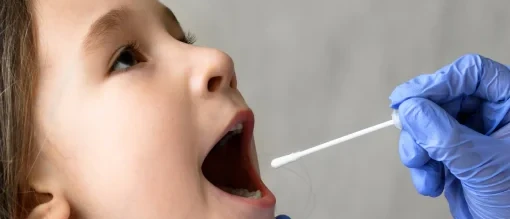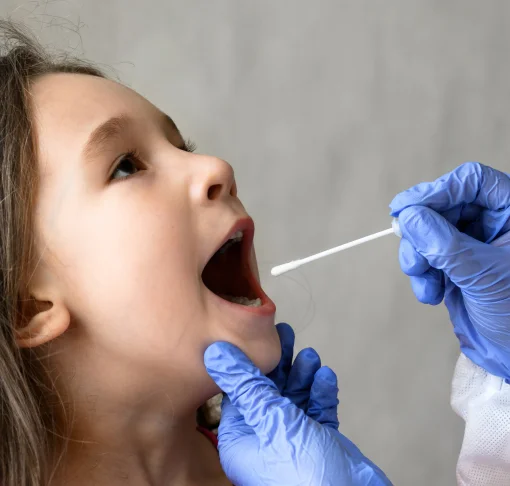Immigration DNA Testing Explained
In the realm of immigration, establishing undeniable proof of family relationships can be the linchpin in securing a successful outcome. DNA testing has emerged as a pivotal tool in this process, offering highly reliable evidence of biological relationships where documentation is lacking or insufficient. This blog delves into how DNA testing goes beyond the basics to support legal immigration processes, providing detailed insights into its application, benefits, and the critical role it plays in navigating complex immigration systems.
The Role of DNA Testing in Immigration
DNA testing is more than just a procedural step; it's a crucial element that can significantly influence the trajectory of immigration applications. Here’s how it integrates into the broader framework of immigration laws and procedures:
1. Establishing Familial Ties
In many cases concerning immigration to the UK, subjects are required to prove familial relationships to sponsors or petitioners through birth certificates or marriage documents. When these documents are unavailable, incomplete, or not credible, DNA testing serves as an unbiased method to prove biological relationships.
Types of Relationships Tested:
-
Parent-Child: The most common requirement, where a child is joining a parent who is a legal resident or citizen.
-
Siblings: Important in cases where brothers and sisters are being reunited under family visas.
-
Extended Family: Including grandparents, aunts, uncles, and cousins, particularly in refugee and asylum cases where entire family units are displaced.
2. Overcoming Documentation Challenges
In many parts of the world, civil unrest, natural disasters, or bureaucratic inefficiencies make it difficult to obtain traditional proof of relationships. DNA testing can provide robust evidence for biological relationships in situations where adoption or surrogacy is involved, and paperwork alone doesn’t tell the whole story.
3. Supporting Legal Arguments
Results from DNA tests are considered strong evidence by immigration officers and can often tip the scales in favour of applicants. By providing clear and conclusive evidence, DNA testing can speed up the review process, reducing wait times and uncertainty for applicants.
How DNA Testing Works in Immigration
The process of DNA testing for immigration purposes is meticulous and designed to uphold the highest standards of accuracy and legality:
1. Initiation of Testing
-
Request from Immigration Authorities: Often, DNA testing is initiated based on a request from immigration agencies, family lawyers, or as part of an appeal to provide additional evidence.
-
Legal Representation: In many cases, lawyers or legal representatives will recommend DNA testing to strengthen an application or appeal.
2. Collection and Handling
-
Chain of Custody: To ensure the results are legally admissible, a strict chain of custody is maintained. Samples are collected by certified professionals, and the identity of each participant is verified through photographic ID and fingerprints.
-
Global Collection Network: For families spread across different countries, accredited labs like AttoLife coordinate global sample collection, ensuring that the process is seamless and consistent, no matter the location. We focus on countries including Ghana, Nigeria, Eritrea, Bangladesh, Afghanistan and Pakistan.
3. Analysis and Reporting
-
Advanced Techniques: Using state-of-the-art genetic testing technologies, labs analyse the samples to determine close biological relationships with high accuracy.
-
Clear, Detailed Reporting: Results are presented in a format that is easy to understand yet comprehensive enough to meet legal standards, including expert witness statements where necessary.
Conclusion
DNA testing is a powerful tool in the immigration process, offering definitive proof of familial relationships that can overcome the limitations of traditional documentation.
By providing detailed insights into the process and its impact, AttoLife aims to illuminate the path for many seeking to navigate the complexities of immigration law with confidence and clarity. Whether for reuniting families, confirming parental ties in adoption cases, or supporting legal arguments in immigration appeals, DNA testing stands as a beacon of hope and a pillar of support for many.
At AttoLife, we are committed to leveraging our expertise to assist individuals, families, and legal professionals in turning the promise of DNA testing into a reality, ensuring that each step taken is informed, secure, and aligned with the ultimate goal of successful immigration. Our DNA testing laboratory is UKAS accredited and listed in the government Home Office accredited DNA testing laboratories. Please get in touch with our team for any enquiry about, Legal DNA testing, Immigration DNA testing or Peace of Mind testing at +44 01603 358161 or email us at info@attolife.co.uk.

